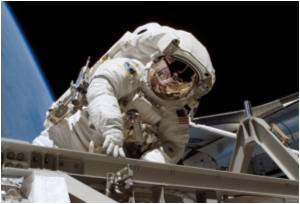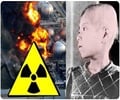Three days prior to exposure to space-like radiation, scientists fed mice an anti-inflammatory drug. They found that the animals developed 50 percent less carcinomas.

Researchers found that mice irradiated over many days had more cancerous tumors than those that received a single hit of radiation, even though the total dosages were same, Jerry Shaw, with the University of Texas Southwestern Medical Center in Dallas said.
Shaw and his team turned to CDDO-Me to see what impact the drug is going to have on irradiated mice.
The team found that mice that were fed food laced with CDDO-Me 3 days before being irradiated, developed fewer tumors than those that did ingest the compound, Discovery News reported.
For the mice suffering from lung cancer, the rate fell from 35 - 17 percent with the drug.
Another group of lung cancer-prone mice exposed to radiation similar to what is produced during a solar storm cut its tumor rate from 30 percent to 19 percent with the drug, Shaw said.
Advertisement
Shaw said that cell cultures suggest that the drug is also effective if taken within an hour after radiation exposure.
Advertisement
Source-ANI














